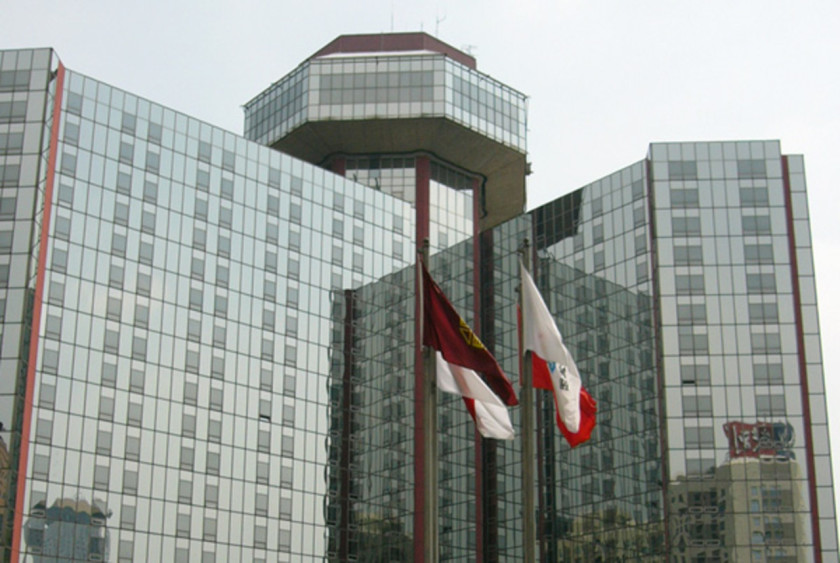HZB is involved in the Helmholtz exchange programme with China

With regard to Chinese institutions, the Helmholtz Beijing Office (photo) wants to promote the Helmholtz Association and its outstanding research environment and facilities as an attractive location for the training of young scientists. Photo © Helmholtz-Gemeinschaft
The Helmholtz Association and the Office of China Postdoctoral Council, OCPC, are establishing a common exchange programme for Chinese postdocs. The young scientists will be researching at eight Helmholtz centres for two years before returning to China. HZB is also involved in the exchange programme, which runs from 2017 to 2021.
Two Chinese postdocs have recently started working at HZB, funded by a stipend from the programme. Dr. Junming Li is researching in the young investigator group “Materials and Interfaces for Stable Perovskite Solar Cells”. This group is headed by Dr. Antonio Abate, who is presently at Fuzhou University in China as a visiting professor. The second postdoc, Hongtao Yu, is working in the group of Prof. Dr. Yan Lu, an expert for colloid chemistry. Two more postdocs will be arriving at HZB at the beginning of 2018 in the scope of this exchange programme.
For their research stay, the postdocs are receiving a scholarship equally co-funded by the Chinese OCPC and the host centre. In total, 50 young researchers this year have received the opportunity to research at the Helmholtz centres under the supervision of experienced scientists, and to acquire valuable international experience.
The exchange programme between the Helmholtz Association and OCPC is the first of its kind on this scale. Previously, only very few young OCPC postdocs from China would be given the opportunity to research in another country. The postdoctoral exchange programme is intended to create a basis for long-term, sustainable cooperation between the two countries in science and education.
Helmholtz Centres involved:
FZJ (coordination), DESY, HZB, HZI, GFZ, GSI, KIT and HMGU
Also involved is the Helmholtz office in Beijing.
(sz)
https://www.helmholtz-berlin.de/pubbin/news_seite?nid=14743;sprache=en
- Copy link
-
Battery research with the HZB X-ray microscope
New cathode materials are being developed to further increase the capacity of lithium batteries. Multilayer lithium-rich transition metal oxides (LRTMOs) offer particularly high energy density. However, their capacity decreases with each charging cycle due to structural and chemical changes. Using X-ray methods at BESSY II, teams from several Chinese research institutions have now investigated these changes for the first time with highest precision: at the unique X-ray microscope, they were able to observe morphological and structural developments on the nanometre scale and also clarify chemical changes.
-
Hydrogen: Breakthrough in alkaline membrane electrolysers
A team from the Technical University of Berlin, HZB, IMTEK (University of Freiburg) and Siemens Energy has developed a highly efficient alkaline membrane electrolyser that approaches the performance of established PEM electrolysers. What makes this achievement remarkable is the use of inexpensive nickel compounds for the anode catalyst, replacing costly and rare iridium. At BESSY II, the team was able to elucidate the catalytic processes in detail using operando measurements, and a theory team (USA, Singapore) provided a consistent molecular description. In Freiburg, prototype cells were built using a new coating process and tested in operation. The results have been published in the prestigious journal Nature Catalysis.
-
Rutger Schlatmann re-elected as ETIP PV Chair
The European Technology and Innovation Platform for Photovoltaics (ETIP PV) was created by the European Commission in order to promote photovoltaic technologies and industries in Europe. Now, the ETIP PV Steering Committee elected a new Chair, as well as two Vice-Chairs for the term 2024 – 2026. Rutger Schlatmann, head of the division Solar Energy at the HZB, and professor at HTW Berlin, was re-elected as the ETIP PV Chair.
